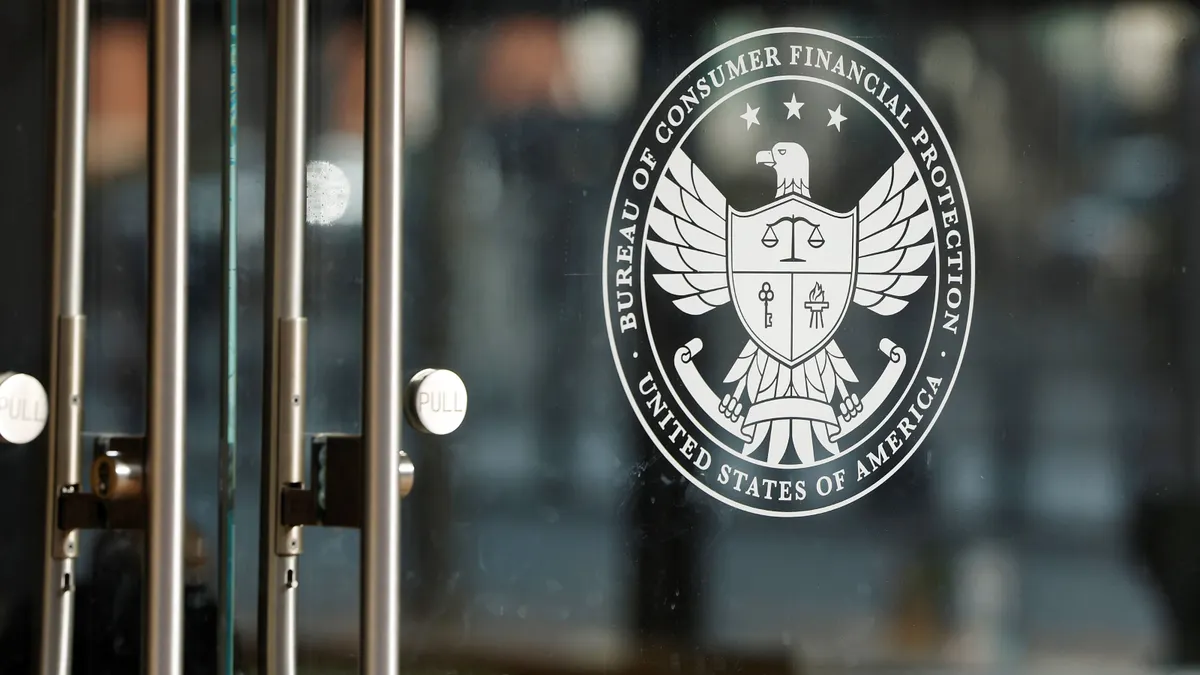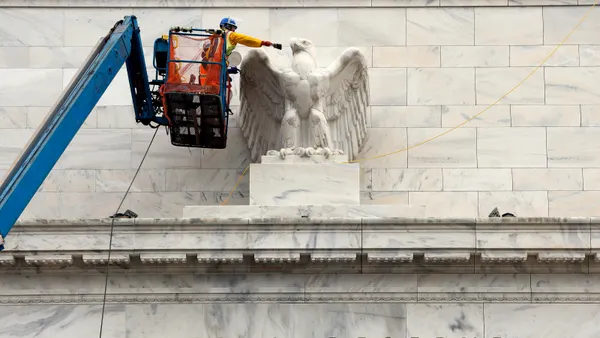MoneyLion agreed Friday to pay $1.75 million to settle a long-running lawsuit from the Consumer Financial Protection Bureau, alleging the fintech charged more than the maximum 36% interest rate allowed by the Military Lending Act on loans to service members.
The settlement narrows – to 12 – the number of cases the CFPB has in active litigation, based on a count given last week by a representative of the bureau’s workers union. The CFPB has dismissed 22 enforcement actions this year.
The case also bolsters the CFPB’s commitment – from April, and subsequently reinforced in a “humility pledge” Friday – to focus on providing redress to service members, veterans and their families.
As part of the settlement, MoneyLion is barred from extending consumer credit at rates higher than 36% to borrowers for whom the MLA cap applies. That includes credit insurance premiums or fees, any fee for a debt cancellation contract or debt suspension agreement, or any fee for a credit-related ancillary product sold as part of a credit transaction. It also includes finance charges, application fees or membership fees.
That was a focal point of the CFPB’s September 2022 lawsuit against the company. MoneyLion required customers to join a membership program – which carried a monthly fee between $19.99 and $29 – to access the fintech’s low annual percentage rate installment loan product, the bureau said when the suit was first filed. But the company failed to allow borrowers to cancel their memberships until their loans were paid, and in some cases, wouldn’t cancel memberships if the borrower had unpaid membership fees, the CFPB added.
Friday’s settlement bars MoneyLion from preventing borrowers from canceling their membership. It also does not permit the fintech to engage in collections activities for past unpaid membership fees, collecting membership fees for periods when memberships were suspended. MoneyLion also can’t prevent borrowers from paying off loans in full by using funds in their credit reserve account, according to the settlement. Nor can the company ding borrowers’ credit scores over unpaid membership fees.
Also as part of the settlement, MoneyLion must submit an accurate written compliance report, sworn under penalty of perjury, to the CFPB, detailing the number of borrowers who received redress and the amount paid to each. The settlement covers borrowers who had outstanding MoneyLion loans between December 2017 and October 2024.
MoneyLion, in September 2022, disputed the CFPB’s allegations, accusing the regulator of taking a “sensationalist route of prioritizing headlines instead of engaging in constructive dialogue.”
“MoneyLion has the highest regard for its military and veteran customers and [is] committed to working with this important community to help them achieve better financial health,” the company said at the time. “MoneyLion is honored to serve this important segment of its customer base and is grateful for the sacrifice these men and women have made for our country.”
The membership offering represents a small subset of MoneyLion’s business, the company said at the time.
Since then, the fintech has come under new management: MoneyLion was acquired this year by Gen Digital for about $1 billion.
The CFPB is also not the only entity with a consumer-protection case against MoneyLion. New York’s attorney general sued MoneyLion and fellow earned wage access provider DailyPay in April, alleging they made “illegal, high-interest loans” to tens of thousands of workers with fees that “amount to outrageous annual interest rates in the triple digits.”
The city of Baltimore last month sued MoneyLion, alleging the company misled and manipulated consumers into taking out small-dollar, short-term loans that come with high fees.
MoneyLion in 2023 persuaded the judge in the CFPB case to pause proceedings ahead of a Supreme Court ruling that affirmed the bureau’s funding structure is constitutional.














